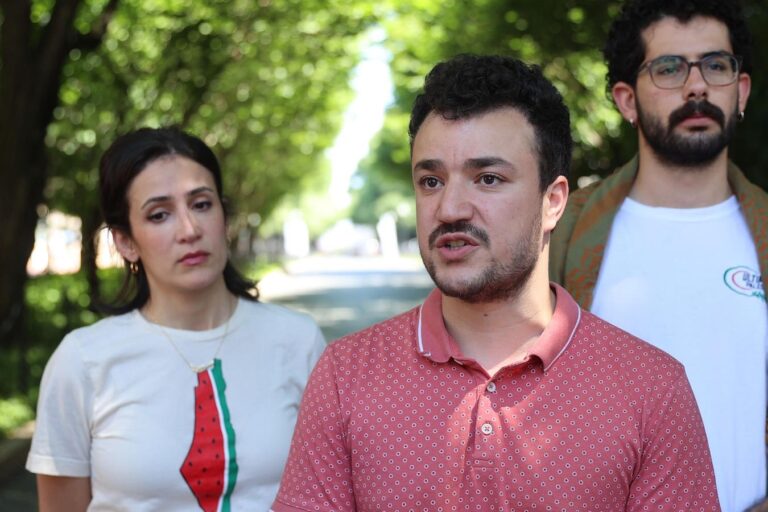
Syria’s new leader has repeatedly signalled that he was not looking for confrontation with Israel. Soon after sweeping President Bashar al-Assad from power last December, he told the BBC that Syria would not pose a threat to any country.
He has even left the door open to normalising diplomatic relations with Israel in the future, telling the Economist last month that Syria wanted peace with all parties, but that it was too early to discuss such a sensitive issue.
His top priority since taking power has been to unite a bitterly divided Syria, and pacify external relations with its neighbours, while he cements his power and control.
But Israel has not made that easy. Its military interventions in Syria are fuelling conflict with both external powers like Turkey, and with internal groups like jihadists in the country’s south.
Once an implacable enemy of Syria’s former president and his Iranian ally, Israel is also suspicious of Sharaa, a man who once led the Syrian branch of al-Qaeda and whose new government is backed by Turkey.
Since he took power, Israel’s military has repeatedly pounded Syrian weapons stores, airfields and other military sites left by the former regime, to avoid them falling into enemy hands, it says.
It has also occupied a demilitarised buffer zone, set up after the 1973 Arab-Israeli war, and has sent forces onto the Syrian side of a nearby mountain, setting up nine bases across the area.
Israeli troops are also making regular incursions into Syria’s south-western provinces, vowing to prevent the presence of any armed groups or government forces there.
Earlier this week, the local government in the southern city of Deraa said nine civilians were killed in an Israeli bombardment, during the deepest incursion there yet by Israeli forces.
Another four people were killed in Israeli shelling near the village of Koya late last month, after local gunmen tried to stop the advance of Israeli forces there.
Since then, mosques in both Deraa and Damascus have reportedly called for jihad against Israeli forces.
Charles Lister, head of the Syria Programme at the US-based Middle East Institute, which studies the region, has counted more than 70 ground incursions into south-west Syria since February, describing this as “an extraordinarily dangerous moment – and an unnecessary one”.
Since the fall of Assad four months ago, he says, not one attack has targeted Israel from Syria, the country’s security forces have intercepted “at least 18 weapons shipments destined for Hezbollah in Lebanon, and dismantled at least eight formerly Iranian-linked rocket launch sites”.



